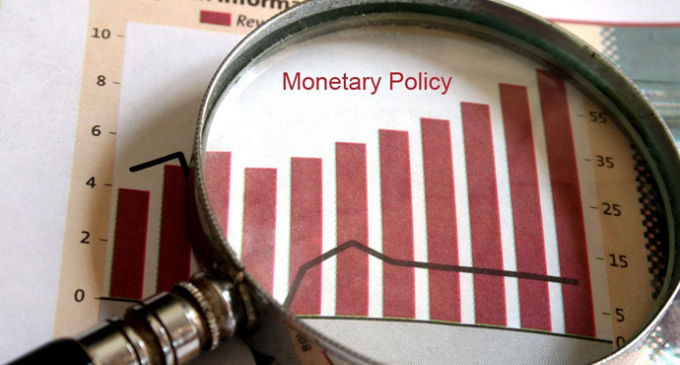The Need To Enact The Right Monetary Policy

By Dr Sein Maung
In making decision for laws and economic policies, it is needed to reflect practical conditions so that fair and truly beneficial laws and policies can be promulgated for the public. Regarding this issue, the meeting was held at the headquarters of UMFCCI on 4th April 2013 headed by Chairman of Pyithu Hluttaw Thura U Shwe Man and Chairman of the Rule of Law and Tranquility Committee Daw Aung San Suu Kyi, and participated by many representatives and business leaders from different political and economic fields.
On behalf of Myanmar Banks Association, I also presented the following discussion on the requirements and suggestions for deciding the right monetary policy.
Deciding Monetary and Financial Policies
In fact, presentations by businessmen are actual challenges and necessities in respective industries, so it is acceptable from their points of view. But by an overview from the perspective of economic, financial and monetary aspects, it is needed to consider our country’s current economic conditions, too. For example in fiscal year 2013-2014, GDP is expected to grow 8.9 percent. To gain that economic growth, 25.5 percent of investment from public sector and 74.5 percent from private sector are needed. To attain the private sector’s investment target, the public is needed to save more money in banks. The luring interest rate should be announced to attract more savings. On the other hand, to get private sector’s investment target, a good investment climate should be available. The budget deficit of the state for the 2013-2014 balance sheet is expected at K 2.9 trillion (K 29000 billion). Tax to GDP ratio is only 5 percent. To gain investment and to implement state projects and management processes from public sector also, adequate tax income is needed. On the other hand, taxation must not be a burden for the people and it should be fair.
Fundamental Economic Aims
As economic, financial and monetary policies are inter-connected, they are needed to be strong.
The main aims of economic policies are 1) GDP growth 8.9 percent, 2) employment, 3) poverty reduction and income distribution. To achieve the main economic aims, it’s needed to establish the right fiscal policy and monetary policy.
Fiscal Policy
Taxation: The fiscal policy includes investment, expenditure, management of internal and external debt and tax system and taxation. The right fiscal policy is needed to get internal and external investment to implement the targeted aims of 5-year and yearly projects. It’s needed to focus on development of practical taxation system to get and encourage investment from inside and outside the country. In reality, our Tax/GDP ratio is very low compared to other developing countries. It’s needed to improve from current 5-6 percent to at least 10-15 percent. Taxation has loop holes. A special program is needed to clear tax evasion, tax avoidance, and corruption in taxation. Like population census, tax payer census is also needed. In 1990, I submitted a paper at the UMFCCI to practice value-added tax for the state to get more tax and fair tax system. Some developing countries are practising value-added tax. IMF experts have also agreed my advice.
Investment: in deciding investment, 1) natural resources, 2) human resources, 3) administrative capacity and 4) appropriate technology are needed to be basically assessed to approve an investment program. White Elephant Schemes and non-productive programs with imbalanced interest rates should be avoided. In accepting international investment, it is needed to give priority to sustainability of the state and private economy. Likewise, in restructuring economic, fiscal and monetary affairs, it should not be rushed and should be practical with Myanmar’s actual situation in various aspects. Outside investment can be double-edged. Lessons from indebted Cyprus, Greece and Spain should be learned. For long-term benefits of the country, it should be focused on human resource development and acquisition of appropriate technology.
Monetary Policy
In our discussion, we also presented interest rate of banks and exchange rates. Some businessmen argued reduction of interest rates to lower costs for their businesses. We need to objectively think and decide issues related to reduction of interest rate.
Related basic factors are
- Enough Incentive to attract savings at banks
- Need for private sector savings (private sector investment ratio: 74.9 percent)
- Saving/investment function
- Equity between lenders and savers
- Profitability for banks
- CPI/asset inflation, and
- Parallel market interest rate.
Experience: after deep-water projects were allowed, with the request from business owners, bank interest rates were reduced two times: one in 2011 while deep-water projects were started, and another in 2012-2013 fiscal year. Competitiveness has not increased, contrary to the expectations of private bank owners. Production and import are also not visibly increased. How interest rate affects production cost should be assessed practically and industry-wise. Only then will the facts be strong enough to be discussed. To compete with foreign businesses, it depends on –factors such as technology, skills, management, quality of products and price competitiveness, and systematic market research. Because it is a structural problem, we need to objectively think about it with the empirical study, not just focusing only on the interest rate. Only if banks have savers, they will be able to lend money. Then only private sector’s investment target of 74.9 percent will be obtained. Banks are also businesses and appropriate profits are needed.
Financial Sector Contribution to GDP
In 2013, financial sector contribution to GDP is only 0.2 percent. It is needed to expand and emphasize the financial sector because of the result of financial repression, including interest rates, of many years.
The Need to Improve Banking Sector
Myanmar banking is not just losing momentum but out of standard too. Only with appropriate profits can banking standard be improved. Banking is also a business like other businesses. For example, First Private Bank is organized with about 6,500 share holders and appropriate profits are distributed annually. Computers are needed to upgrade banks, and this can be done only with profits. Even the state banks are losing money.
Incentive: 2013-2014 project foresees private sector investment ratio of about 75 percent. Money needed for investment is expected from investment home and abroad. So, expectation and outcome should be harmonized. It is difficult to take foreign investment for granted, so more attention must be given to internal investment. Internal investment is dependent on internal saving, not to depend on public sector saving which is facing too much deficit. Therefore, private sector saving must be relied on. To increase private sector saving, incentive from saving in banks should be used as an engine.
Current Fiscal and Monetary Conditions
State balance sheet for 2013-2013 shows budget deficit K 2.9 billion, and money supply is K 7 trillion and to be increased 23.5 percent in 2013-2014, lending from banks increase yearly due to more private banks and increased 48 percent in 2012-2013 known as credit expansion, increased FDI of $2300 billion in 2012-2013 to expect $3400 billion in 2017-2018 (IMF), inflationary expectations due to increased salaries for employees in 2013-2014.
Therefore, it is needed to consider if banks should lend much more with reduced interest rates because of current monetary conditions. While there are inflationary expectations, it is needed to consider if the reduction of interest rate is the right monetary policy or not. Inflation and increased consumer prices are related and reduced interest rate should be thoroughly considered.
Consequences of Lowering Interest Rate
It is learned from experience that those who have saved money at banks tend to withdraw their money when the interest rate is lowered. This could lead to asset inflation and more speculation, which are unwanted effects. On the other hand, private industry is seemingly not receiving good results. It is clear it has encouraged speculation for easy lending money. Real estate prices are extremely high even today, being a result of easy lending from bank money. So, it supports asset inflation and increased consumer prices in the long term. Asset inflation and CPI are inter-related. Today although the US, England and Japan are lending more money due to their various economic conditions, they risk increased consumer prices at some time in the future. They do it according to their own situations.
Equity for Savers
Most savers are monthly earners of non-owner low-income people. Most lenders are business owners. Low-income savers are reliant on income from interest rate. Business owners or lenders get more profits from bank’s lending at a lower rate. It is needed to be fair between savers and lenders. It is needed to avoid politicization of interest rate.
Comparison with Interest Rates not Related to Banks
If the interest rate of a bank loan is compared with mortgaging of gold, real estate, daily-returned money, pre-season crops money, etc., bank interest rate is too much lowered. Moreover, Central Bank of Myanmar also has to give an interest of 10 percent for treasury bills borrowed by other banks. Some banks give 10 percent interest for saving a year in the bank, and take 10 percent for the bank for borrowing money, so the net profit is just 2 percent which is not more than beneficiary money received from trading products.
Suggestion
Therefore, it must be decided objectively after fairly considering various aspects concerning bank interest rate. In the long term, it should be market-determined rate rather than the rate of the central bank. What I like to suggest is to consider establishing specialized banks such as an export/import bank for increasing exports and an industrial development bank for improving industries. Or Myanmar Development Bank should be considered to set up to lend money with low interest to improve exports and industrial products. Such organizations should prepare to get shares from businessmen, banks and the state to lend money with low interest rate. If so, exporters and industry manufacturers can be allowed low-interest loans.
Exchange Rate Between Dollars and Kyats
With the advice from IMF, Dollar-Kyat exchange rate is set by the central bank with managed float system. For banks having authorized dealer licence, the rate and amount of money that you want to trade must be submitted to the central bank. Central bank then checks selling price outside banks, buying rate and bank-submission rate and amount, and set the exchange rate based on all these factors. Private banks are allowed to trade dollars within +/- 0.8 percent of the reference rate set daily by the central bank. Trading of dollars between central bank and private banks, and dollar buying markets outside banks will create Dollar-Kyat exchange rate.
Comments
Some exporters criticize that current value of Kyat is less profitable for exporters. They said the value of Kyat should be increased around US$1=MMK1000. If there’s a change like this, they consider that, Kyats from exports will be increased and more profits of Kyat will lead to buying crops from farmers at a higher price. If farmers get more money for their crops, they can grow more and exports will be increased.
Export Industry
The reason for not improving crops production as it should be is related to some extent the price of selling and transportation of crops. More important factors are difficulties in crops production like availability of seeds, fertilizers, water, ploughing machines and planting techniques, known as supply side problems. One example is recent increase (buying price of rice by foreign countries) of rice export caused export of more than 1 million tonnes of rice. That’s the new record of rice export since the end of World War II. To get reasonable price for crops export to foreign buyers, we need to upgrade quality of crops and find new markets.
It is like neglecting structural problems of competitiveness with competitor countries, manufacturing and increased export, and the importance of supply side problem. So, problems of export, manufacturing and competitiveness should be analysed deeply and objectively by research. It must be avoided centralized management practice that hinders market-based monetary restructuring. What should be done is what I presented many years ago at a meeting with minister and chairman of Planning and Financial Ministries that Myanmar Development Bank is needed to set up with the help of the state. At that bank, shares are to be contributed by the state, private banks and business owners, and it will lend money with protection and with equal return to export and crops and industrial production.
Towards an Exchange Market
Let me present that traditional ways of centralized management of setting interest rates, and manipulating Dollar-Kyats exchange rate should no longer be practiced at the time of discussion at Pyithu Hluttaw and Amyothar Hluttaw to approve Security Exchange Law to develop money market, and while Yangon Foreign Exchange Market is being implemented with the advice from IMF. There are things left to be done to fully develop monetary policy and the required procedures.
Objective Consideration
Although the argument of devaluation of Kyat exchange rate will increase export is acceptable as an economic theory to some extent, there will be increased cost in Kyat for all imports including consumer goods, intermediary and investment goods. Increased cost in Kyat for imports will increase prices of fuel and state- and private-owned manufacturing goods. This is unavoidable theory of setting prices for businesses. When main import value is more than export value (USD 133 million) in April-December 2012-2013, it is needed to balance devaluation/depreciation of Dollar and Kyat, and consequences of inflation. Research should be done. Moreover at the time of market-based economic restructuring, and exchange rate between Dollar and Kyat being regarded as a market rate, it is a question whether the value of Kyat should be decided unjustly by central bank. It should be considered practically.
Summary
Therefore, although discussion of some business owners and exporters to reduce bank interest rate and correct exchange rate is valuable to some extent from their point of view, the livelihood of the public country-wide can be affected by disadvantages such as inflation, damage to momentum of private banking development, decrease of bank saving needed for state investment, prevention of market-based economic and monetary restructuring. Reducing bank interest rate and devaluation of Kyat discussed by some business owners and exporters are selfishly unjust arguments.
Solving political, social and economic problems needs holistic approach. It should not be solely for the benefits of a group of businesses and an interest group. Only consideration for the whole country and community will be sustainable, strong and fair. Especially in enacting economic policies, careful point of view from macro- and micro-economy should be done beforehand.
Suggestion for Enacting The Right Monetary Policy
Financial Paradigm: to develop financial sector, a separate organization to oversee financial bodies and banks is needed. In England and Japan, Financial Service Authority is separately organized. Recently in Indonesia too, similar group was set up to do this. That is a paradigm to develop financial sector by Ministry of Finance and The Central Bank. Central Bank is to focus on monetary policy and FSA for financial sector development and banks administration. That is a structure to study. Moreover, in these organizations, let me suggest that the leaders should be skillful and experienced.
Translated By
Nyan Hein Latt
./wp-content/uploads/2018/10/Emirate-Online-TDY.png)
















There are no comments at the moment, do you want to add one?
Write a comment